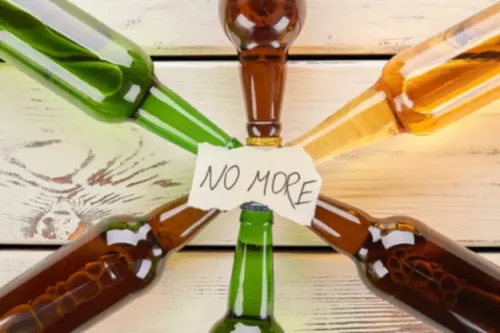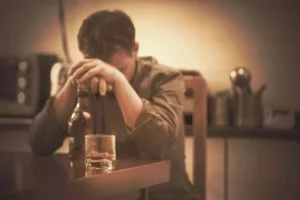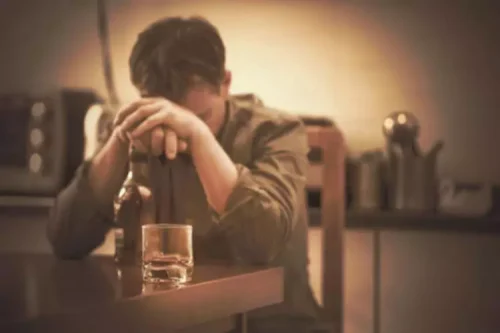
Role-playing scenarios allow individuals to rehearse responses to triggering situations in a supportive environment. It’s like a dress rehearsal for real-life challenges – minus the actual stress. Groups are lead by a trained group leader who prompts discussion and encourages everyone to participate.
Art And Creative Expression
- This activity can bring clarity, reinforce personal resolve, and foster understanding with those who matter most.
- Add one activity that would help you improve your physical, emotional, mental, or spiritual health.
- The rest of the group comments on the accuracy of their assessment and gives advice.
- Guided imagery is a relaxation-focused experiential exercise for group therapy that helps participants visualize positive outcomes or safe spaces.
Members brainstorm coping mechanisms like exercise, journaling, and talking to a friend, helping them build a toolkit of positive strategies to maintain sobriety. Encouraging members to share their personal stories helps build trust, empathy, and connection within the group. Members realize they’re not alone in their journey by discussing their challenges, victories, and motivations for recovery. Group interventions for substance use disorder at NIMHANS started in 1986.
- Our (editable, fillable, printable PDF) therapy worksheets can help you streamline your practice, effectively deliver different types of therapy, and help your clients be their best selves.
- The sense of accomplishment and camaraderie fostered through these experiences can boost self-esteem and motivation in people in recovery.
- Before the group meets, establish the purpose of the session and communicate these goals to the participants.
- Practicing gratitude fosters positivity and strengthens emotional health.
- Clients will oftentimes subconsciously demonstrate actions in group therapy that are representative of their routine patterns and thought processes.
Men’s Addiction Treatment: Tailored Approaches for Effective Recovery
Uplift Recovery Center provides you with recovery in a loving, professional environment. Imagine groups racing to identify and challenge negative thoughts, passing the baton of positivity from one member to another. Or picture a lively game of bingo where, instead of numbers, participants mark off common cognitive distortions as they recognize them in their own thinking. It’s education disguised as entertainment – the best kind of learning there is. Cognitive-behavioral therapy (CBT) might sound intimidating, but who says it can’t be fun? Enter the world of thought challenge relay races and cognitive distortion bingo – where tackling negative thinking patterns becomes a team sport.
Out-Patient Recovery Support Group intervention
Group sessions provide group members with an opportunity to practice life skills including communication and establishing boundaries. Effective group leaders can help create an environment where members can challenge each other in a productive manner while practicing these life skills. In a substance abuse group, members can discuss their triggers along with coping skills they have found useful. This session discusses the benefits of focusing on positive thoughts, reframing negative ones, and supporting a hopeful outlook, which can help members stay motivated in their recovery journey.

The therapist helps individuals develop coping strategies, build resilience, and identify triggers and patterns that may hinder their recovery. Group therapy sessions typically consist of a small group of individuals who are all struggling with substance abuse. These groups are led by a trained therapist who facilitates discussions and activities designed to promote healing and growth. The therapist creates a safe, non-judgmental space where participants drug addiction can openly share their thoughts, feelings, and experiences. Engaging in expressive arts can be a transformative experience for individuals in substance abuse recovery.
- By addressing underlying issues and triggers, participants gain the tools to manage stress and cravings in healthy ways.
- Instruction may be led by an art therapist, or again, these activities may be more informal in nature, such as using watercolors, crayons, or paints expressively for 30 minutes.
- Group intervention and pharmacological intervention are natural allies for the treatment of SUD.
Instantly Download One of Our fillable, editable, printable Substance Abuse Forms:
Mindfulness meditation guides members to stay present, reducing stress and anxiety. This activity includes a brief, guided meditation to help participants focus on their thoughts and emotions without judgment, which can help manage cravings and improve emotional regulation. Offer alternative roles (e.g., being an observer) or allow them to participate at their own pace. It’s important to create a non-pressuring environment where everyone can engage as they feel comfortable. Active listening is essential for building trust and respect in the group.
Regular exercise promotes physical well-being and supports mental and emotional health, helping individuals manage stress, improve self-esteem, and maintain sobriety. Art therapy offers participants the opportunity to express themselves through various art forms, such as painting, drawing, and sculpting. By engaging in the creative process, individuals can tap into their emotions, gain insight into their recovery journey, and develop healthy coping mechanisms.
Try Role-Playing Exercises

First, it was started for outpatients, later it was extended to in-patients as well at psychiatry ward. The aim of group intervention was to encourage the group members https://ecosoberhouse.com/ to open and share their experiences with other members and to learn skills to prevent relapse and maintain abstinence. Presently, in-patient setting runs three group interventions in different languages English, Kannada and Tamil in parallel. Sometimes, depending upon the number of patients, group interventions would be conducted in Telugu and Hindi as well.

This activity helps members recognize qualities they may have overlooked and encourages them to draw on these strengths as they navigate their recovery journey. Spirituality can provide a sense of purpose and inner peace in recovery for those interested. This session invites members to explore their spiritual beliefs—whether through mindfulness, religion, or connecting with nature—and discuss how these beliefs can support sobriety. Pairing members to practice active listening allows them to repeat and respond with empathy, strengthening mutual understanding and reinforcing the group’s supportive environment. Art therapy gives members an outlet to express emotions and experiences creatively.
This session encourages members to share funny stories, reminding fun group activities for substance abuse treatment them that joy and laughter are essential to life and can help lighten difficult moments. In this session, members learn to treat themselves with kindness, focusing on forgiving their mistakes and building self-acceptance to maintain a supportive, constructive mindset. Through role-playing exercises, members are encouraged to see situations from others’ perspectives, which fosters compassion for themselves and others, enhancing social bonds within the group. Writing a letter to one’s younger self can be a powerful way to foster compassion and forgiveness.
